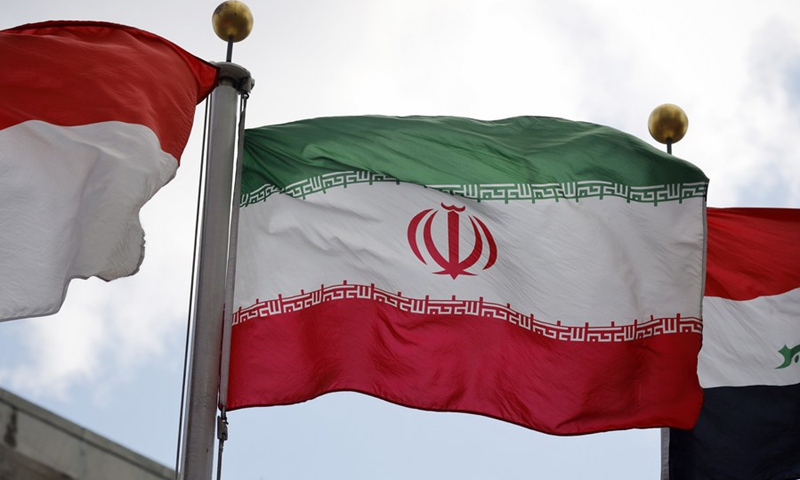
An Iranian flag is pictured at the United Nations headquarters in New York, Jan. 8, 2020. (Xinhua/Li Muzi)
Iran on Saturday angrily accused Bahrain of stirring instability after US President Donald Trump announced Manama and Israel were opening ties in a landmark deal that reinforces America's push to redraw Middle East conflicts.Calling it a "truly historic day," Trump said on Friday that Israel and Bahrain were establishing full diplomatic and commercial relations.
"They will exchange embassies and ambassadors, begin direct flights between their countries and launch cooperation initiatives across a broad range of sectors, including health, business, technology, education, security and agriculture," he said.
Bahrain said in a joint statement that it had agreed to formalize the deal with Israel at a ceremony on Tuesday in the White House, where the United Arab Emirates will also sign off on its own thaw with Israel announced in mid-August.
Shiite Iran, which has especially tense ties with Bahrain and is a sworn enemy of Washington, slammed its Gulf neighbor over the deal.
"The rulers of Bahrain will from now on be partners to the crimes of the Zionist regime as a constant threat to the security of the region and the world of Islam," it said.
Bahrainis opposed to the agreement vented their frustration on social media, using the hashtags "Bahrainis against normalization" and "normalization is betrayal."
"A black day in the history of Bahrain," wrote former lawmaker Ali Alaswad.
Iran's Lebanese ally Hezbollah said the deal was a "betrayal and a painful stab in the back of the Palestinian people."
Turkey condemned it, saying it would "further embolden Israel to continue its illegal practices... and attempts to make the occupation of Palestinian territories permanent."
Bahrain, a Sunni-ruled kingdom with a large Shiite population, relies heavily on the US, which stations its Fifth Fleet in the tiny but strategic Gulf archipelago.
AFP
